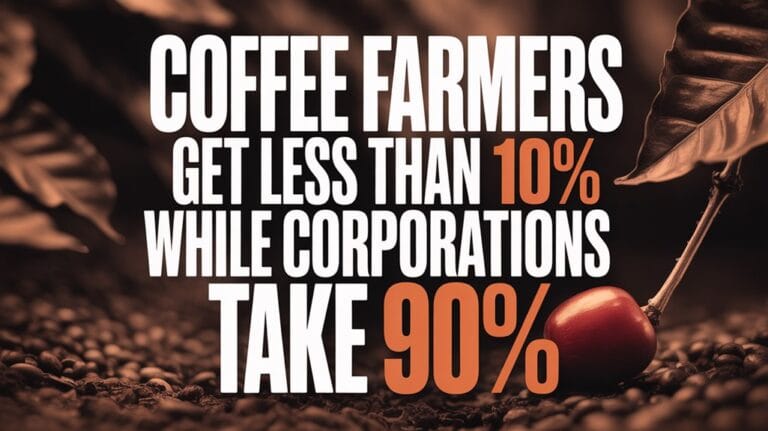While millions sip their daily coffee, many don’t know how few control its journey to their cups. Karl Wienhold’s University of Lisbon course reveals how multinational corporations, traders, and roasters dominate the supply chain, leaving farmers with less than 10% of the value created. His work highlights how consumer awareness and producer empowerment remain critical gaps in addressing these inequities.
Despite coffee’s $200+ billion global market, trade liberalization and knowledge imbalances have left small farmers struggling with volatile prices, climate change, and no voice in decision-making. Sourcing high-quality, single-origin beans is essential for specialty coffee and can impact farmers’ earnings and market access.
Roasters wield significant control through branding, tech, and market influence. Multi-million-dollar companies shape buyer perceptions by framing coffee as “traditional” or “healthy,” building loyal followings that lock out smaller rivals. The recent withdrawal of GCA’s stock reports—a key transparency tool—has exacerbated information asymmetry, allowing dominant players to manipulate market perceptions unchecked. This symbolic capital helps them weather market shifts while farmers face mounting costs for labor and fertilizer. Wienhold notes farmers often lack access to pricing data or the capital to compete, making long-term planning nearly impossible.
Roasters harness branding and market clout to sway buyers, while farmers endure soaring costs and scarce capital, stifled by systemic disempowerment.
Price disparities hit producers hardest. Though Europe and North America capture most industry profits, farmers in Latin America, Africa, and Asia battle inflation, unpredictable harvests, and climate damage. Fair Trade certifications cover just 4% of global coffee sales and often exclude landless laborers. Fairtrade International (FLO) certification criteria prioritize smallholder cooperatives, effectively neglecting migrant laborers who constitute a vulnerable workforce without land ownership. While improved market transparency has given some farmers negotiation power, structural barriers—like roasters’ scale and merged corporate giants—keep smallholders marginalized.
Wienhold argues current business models rarely reflect environmental or social costs. Instead of equitable partnerships, farmers face take-it-or-leave-it contracts that undercut sustainability.
His course stresses that empowering growers requires consumers recognizing their role. By understanding supply chain dynamics, buyers might demand fairer systems—but corporate narratives still downplay these divides.
As coffee demand grows, Wienhold’s research asks whether a beverage enjoyed worldwide can bridge the gap between boardroom profits and farmer struggles.





